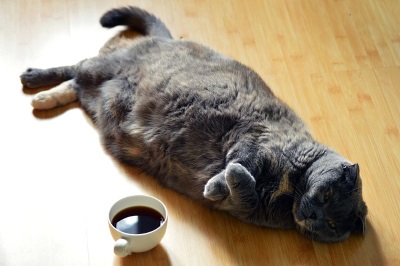Emergency Vet Clinic in Brampton, Highway 10
Taking On The Fat Cats
Combating The Problem Of Feline Obesity
For most breeds of cat the ideal weight is around 10 lbs, though the real figure can vary slightly by breed. Maintaining their ideal body weight is an essential part of keeping your pet happy and healthy for a lifetime.
Feline obesity is a significant problem in many homes and can be tricky to manage if not approached properly. Left unchecked, several health issues may arise from long-term obesity, including:
- Diabetes
- Liver damage in the form of Hepatic Lipidosis
- Arthritis due to continued joint strain from carrying excessive weight
Four Factors To Implementing A Successful Diet
1. Enter into diets slowly rather than implementing drastic changes as this can cause a shock to the liver of a cat. A slow introduction of a diet allows for a period of adjustment that is much healthier and less strenuous.
2. Consider a change from dry to canned food. Wet food has more protein per serving than dry foods tend to and has the added benefit of increasing your cat's fluid intake. Specific weight loss foods can also be acquired from or be prescribed by your veterinarian.
3. Keeping your cat active through play is an important part of weight reduction as well, helping to use stored calories and also regulate appetite.
4. Portion control is essential to ensuring feline diets have a chance at success. Know exactly how much your cat is eating by using a measuring scoop and regular meal times, it establishes a routine and provides better regulation than free-feeding.
Get The Skinny From Your Vet
To learn more about feline obesity, find out what your cat's ideal weight should be and whether or not a diet change may be in the best interest of their long term health, contact your local veterinarian today.